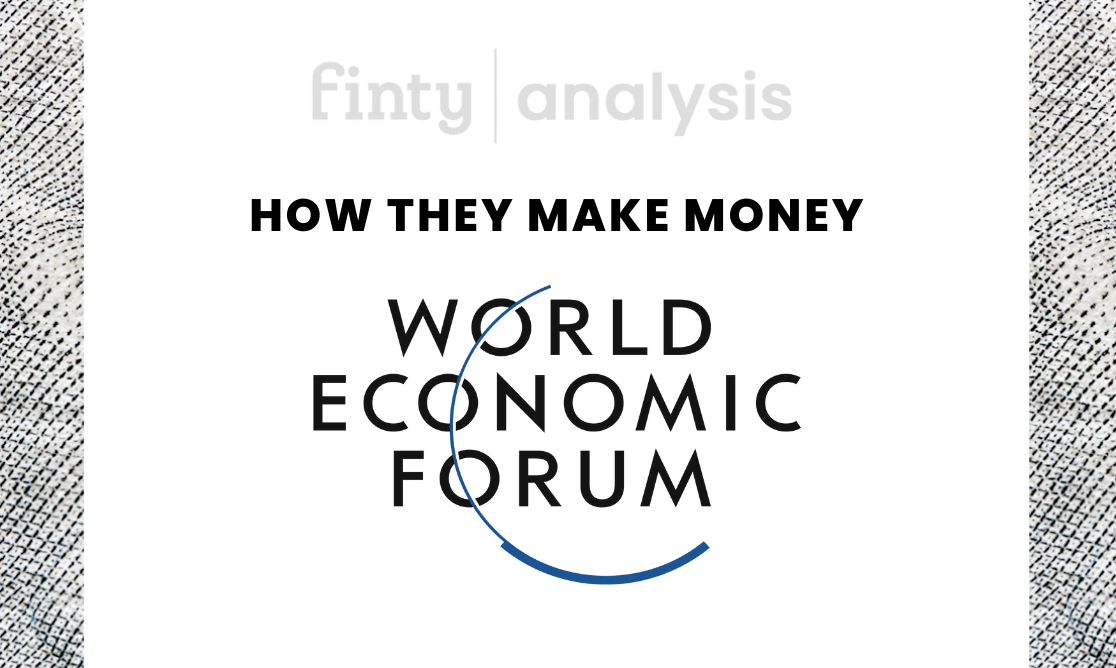The World Economic Forum is an international organization that brings together political leaders, business executives, academics, and other influential figures to discuss and address global economic issues and challenges.
It is controversial as it is influential, with members in the boardrooms of the world's biggest businesses and around the top tables of power. Little wonder, then, that there is so much interest in how the WEF is funded, and what that money is spent on.

Coming up next
What does the World Economic Forum do?
The World Economic Forum (WEF) is an international organization founded in 1971 by Klaus Schwab, a German engineer, economist, and controversial author of "The Great Reset."
It operates from its headquarters in Geneva, Switzerland, with additional offices in New York, Tokyo, Beijing, and San Francisco.
It performs various core functions, including:
- Bringing together members from the public and private sectors, including CEOs, government officials, and spiritual leaders, to facilitate dialogue and collaboration on global issues.
- Organizing regional meetings in developing countries to address specific challenges and promote regional cooperation.
- Hosting the annual meeting in Davos, Switzerland, which serves as a platform for leaders to discuss social, economic, and environmental issues on a global scale.
- Conducting research on various topics related to social, economic, and environmental issues to provide insights and inform decision-making.
- Encouraging public and private sector collaboration to drive positive change and enhance global cooperation.
- Promoting effective communication and cooperation among member countries to address global challenges and achieve sustainable development.
How does the World Economic Forum work?
The WEF's flagship event is the annual meeting in Davos, Switzerland. This exclusive gathering brings together influential business, government, academia, and civil society participants. During the meeting, attendees engage in discussion panels, networking sessions, and workshops to address global challenges and explore opportunities.
In addition to the annual meeting, the WEF conducts research and publishes reports on social, economic, and environmental issues. These efforts provide valuable insights and recommendations for policy-making and business strategies. The reports serve as resources for governments, businesses, and other stakeholders seeking to effectively understand and tackle global challenges.
The WEF also emphasizes the importance of collaboration between the public and private sectors. It promotes partnerships and dialogue to address global issues. Through initiatives and projects, the WEF facilitates discussions, fosters cooperation, and seeks innovative solutions to global challenges by bringing together diverse stakeholders.
How the World Economic Forum makes money
The WEF is funded by membership fees, sponsorships, partnerships, and investment income.
Membership fees
The organization offers different membership levels, including strategic partners, industry partners, and technology pioneers, each with its own set of benefits and fees.
Strategic partners, consisting mostly of large multi-national corporations, pay the highest membership fees, contributing significantly to the WEF's revenue. These fees grant members access to the annual meeting in Davos and other WEF events, industry initiatives participation, and engagement with global leaders.
Sponsorships
The World Economic Forum generates revenue through sponsorships from various partners and sponsors, including governments, foundations, and international organizations. Sponsorship arrangements involve financial contributions, in-kind support, and collaborative initiatives that align with the WEF's mission and goals.
Investment income
The WEF strategically manages its financial assets to generate revenue through investment income. The organization invests its funds in various financial instruments such as stocks, bonds, and other securities to generate returns.

